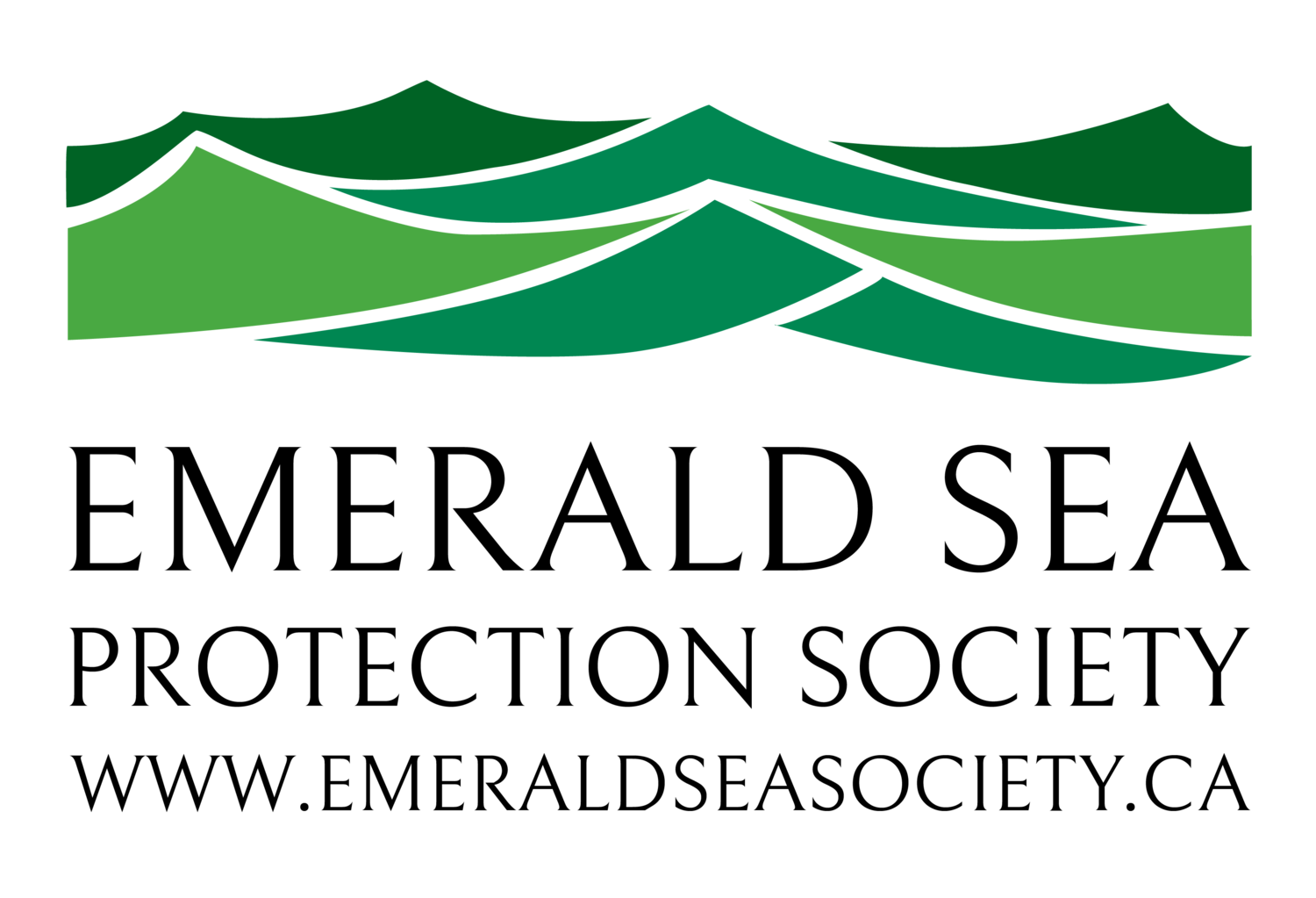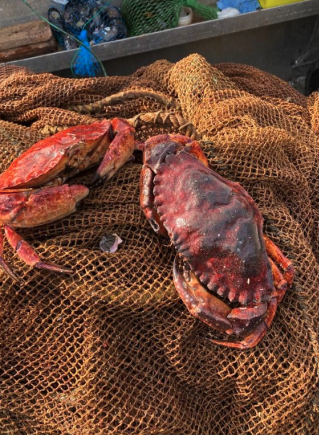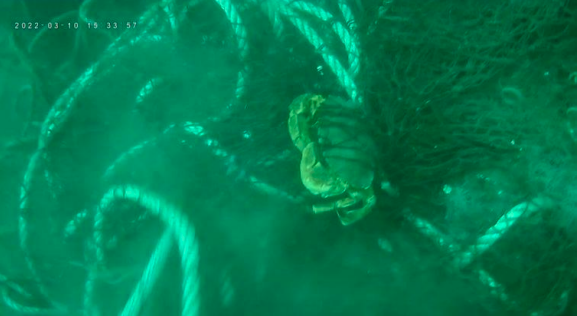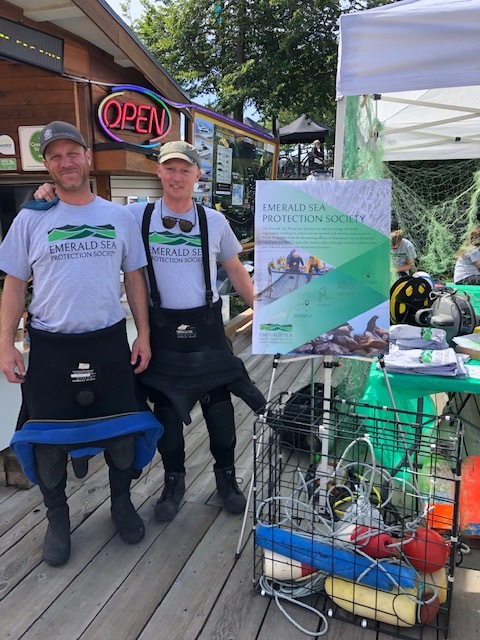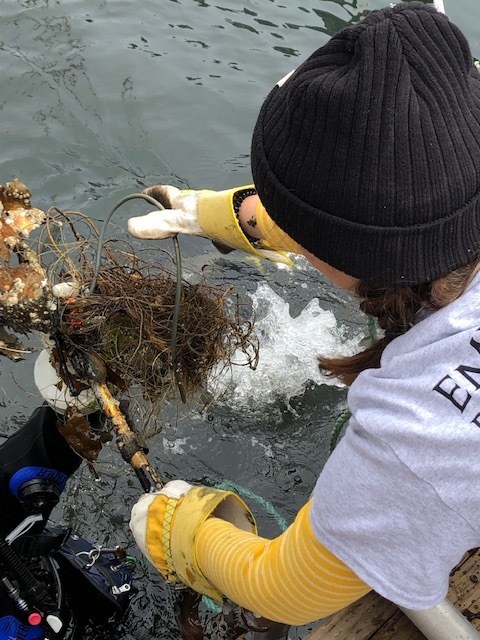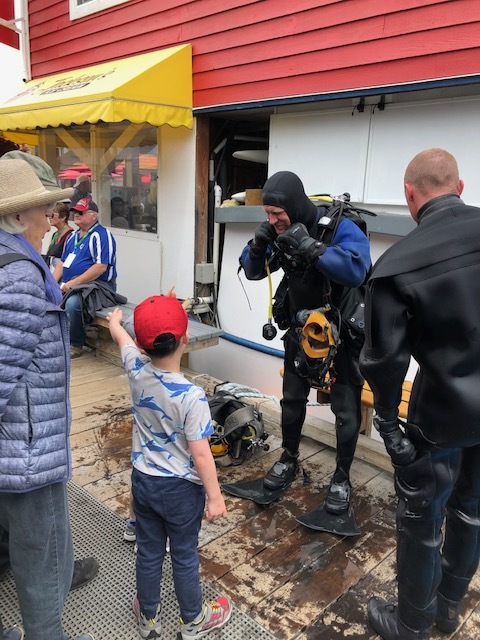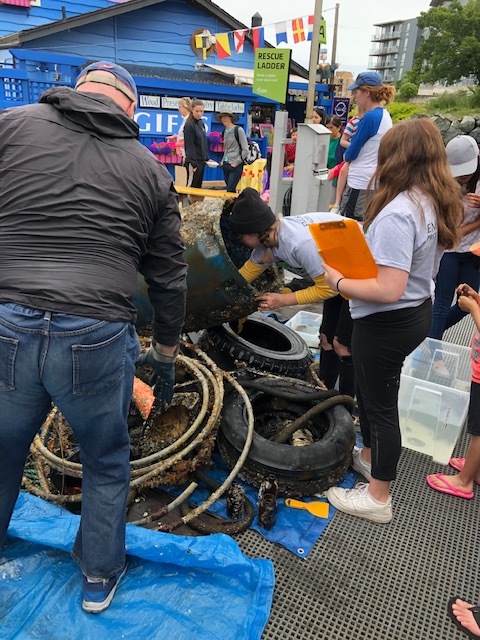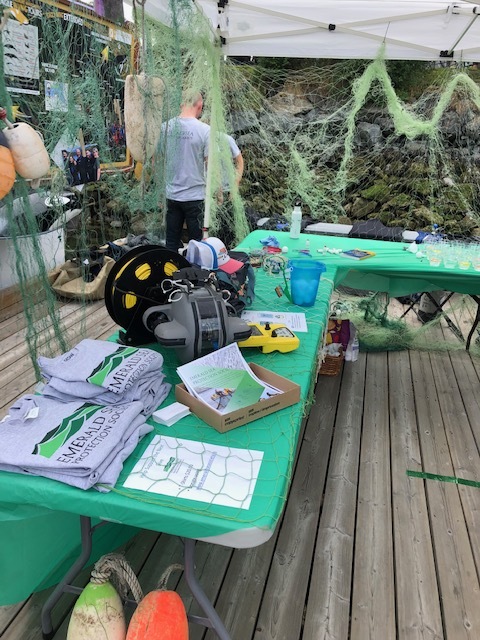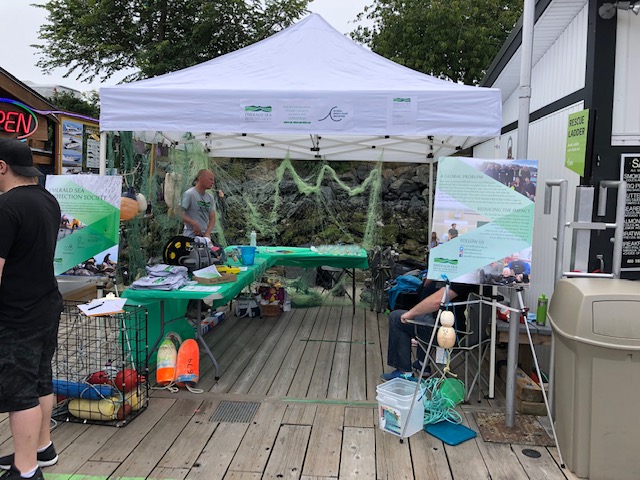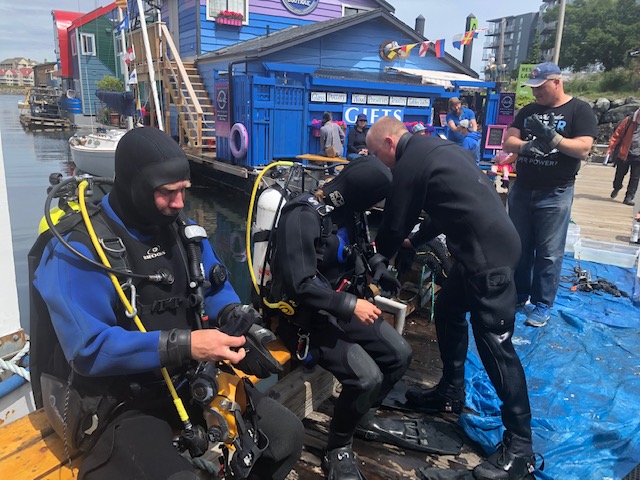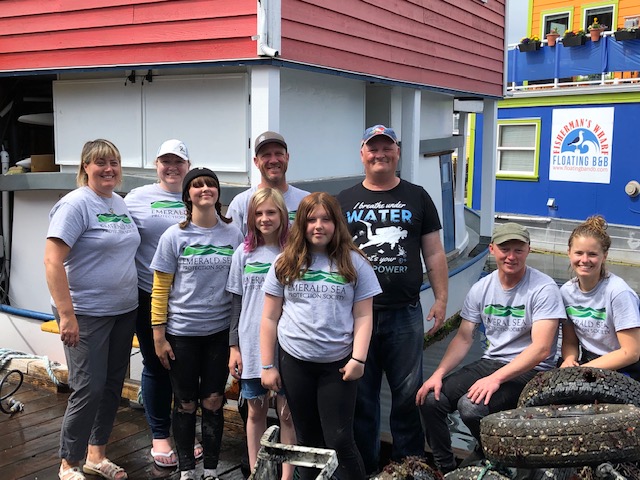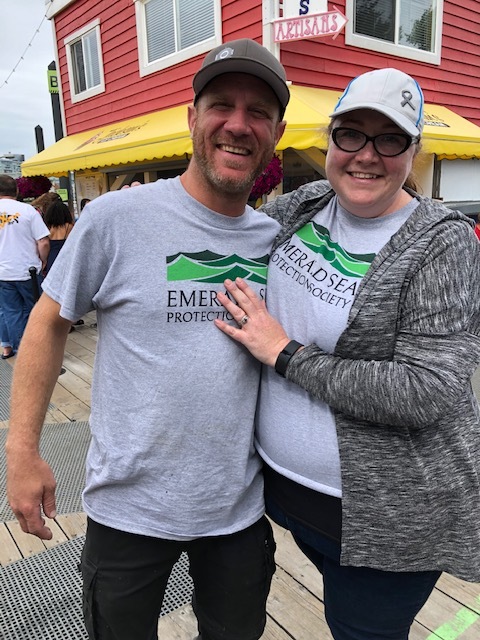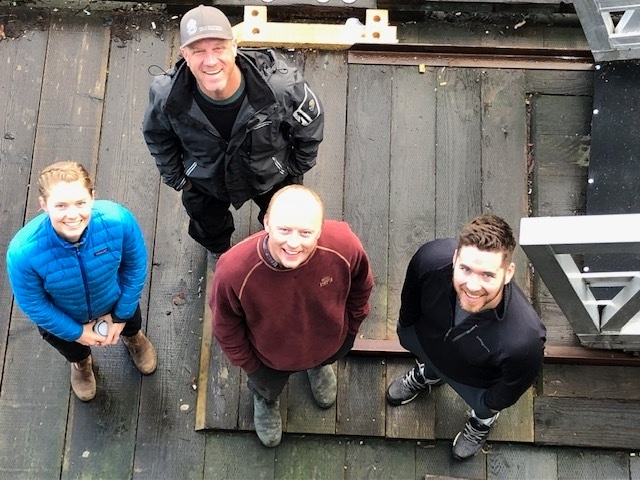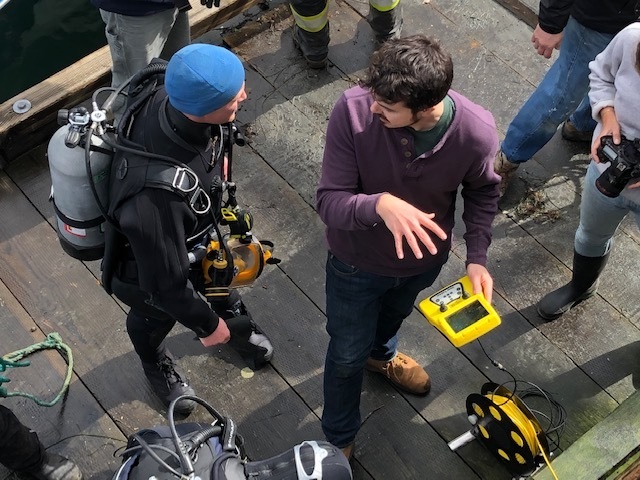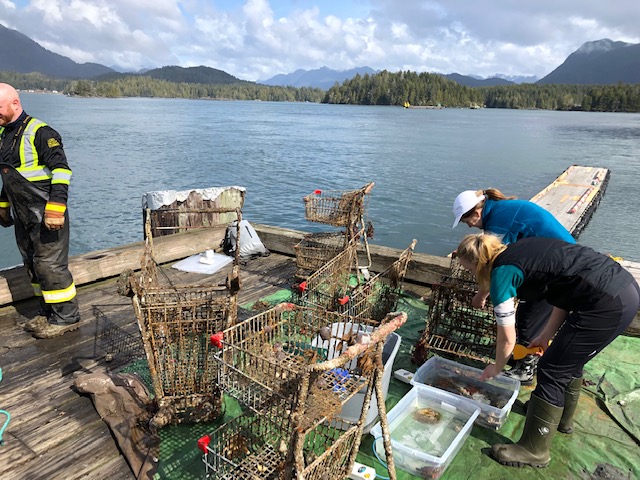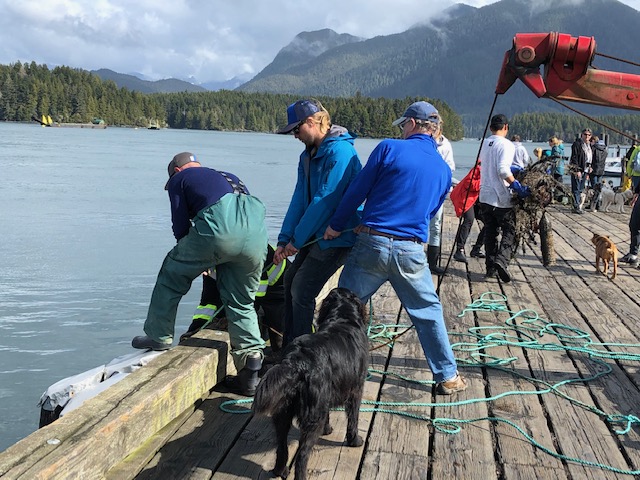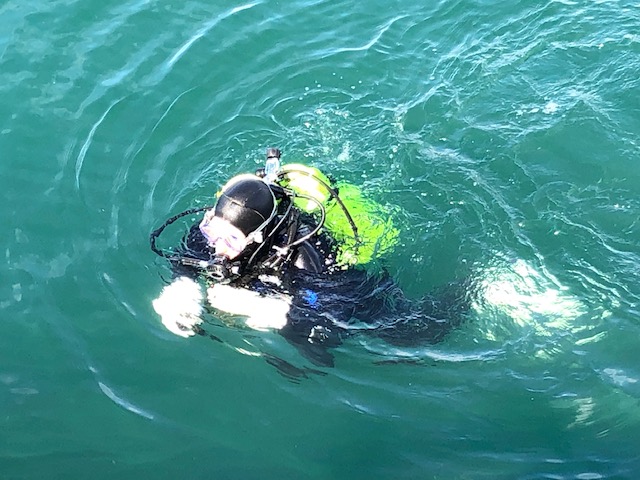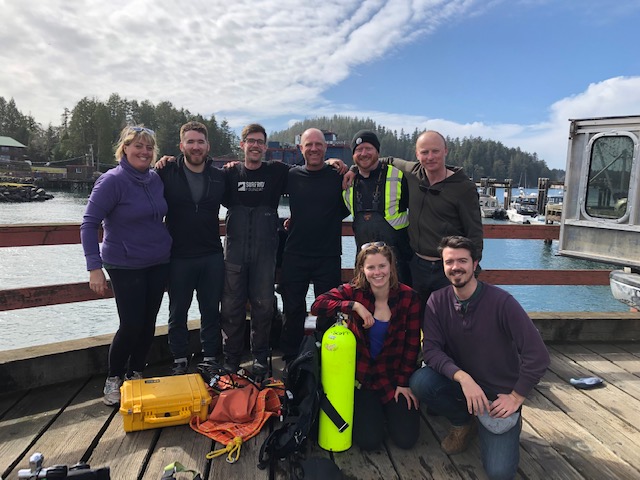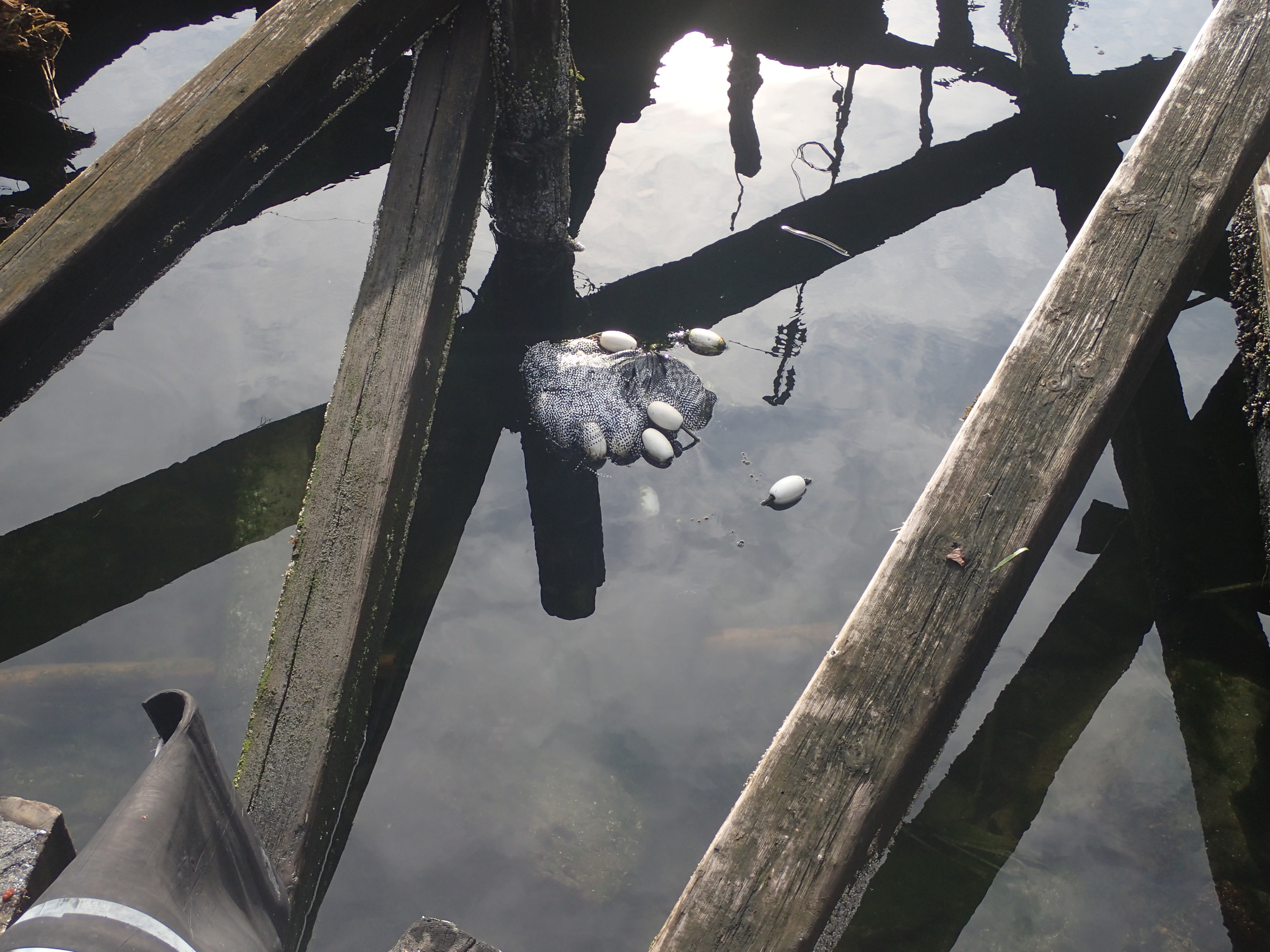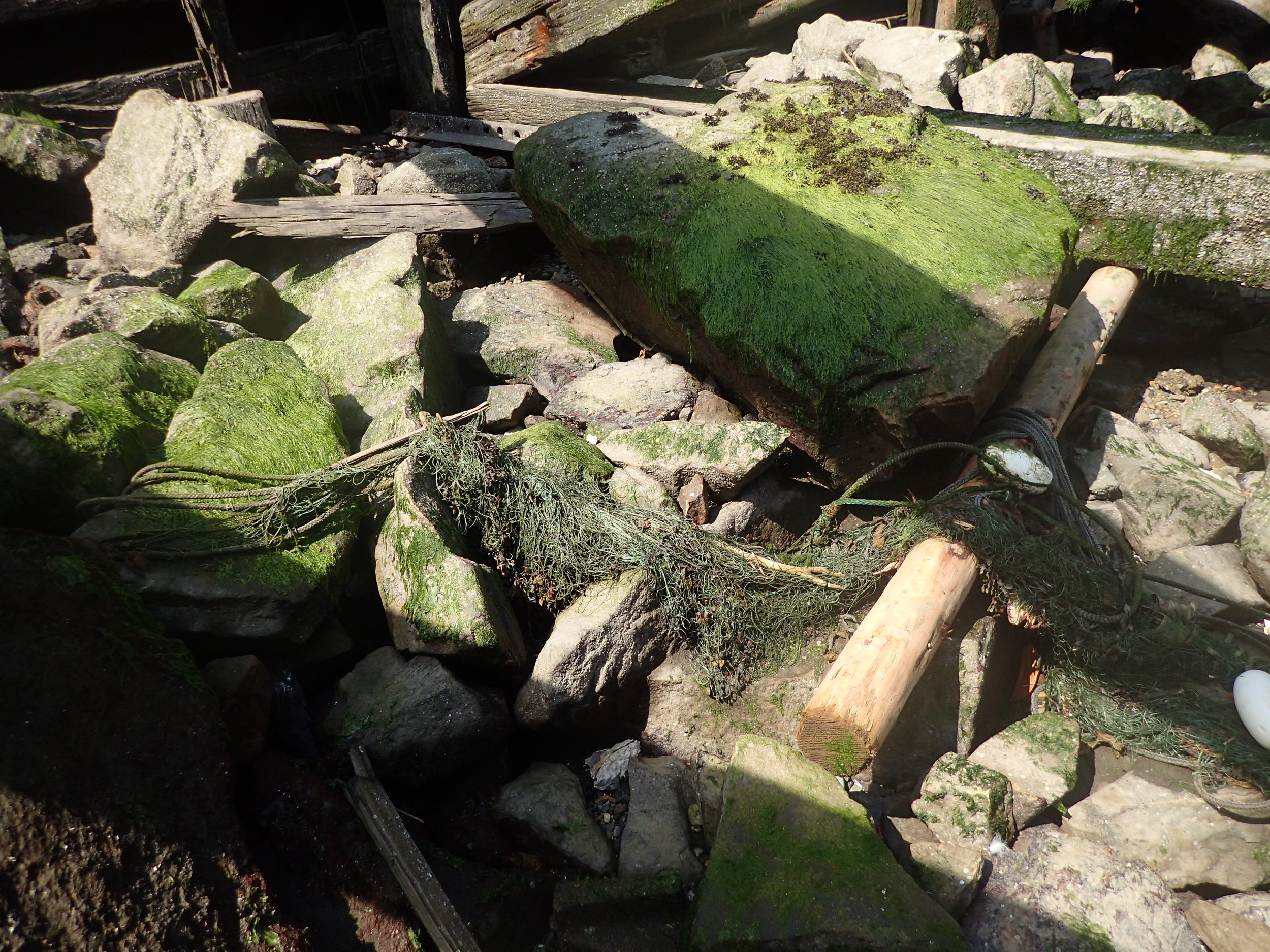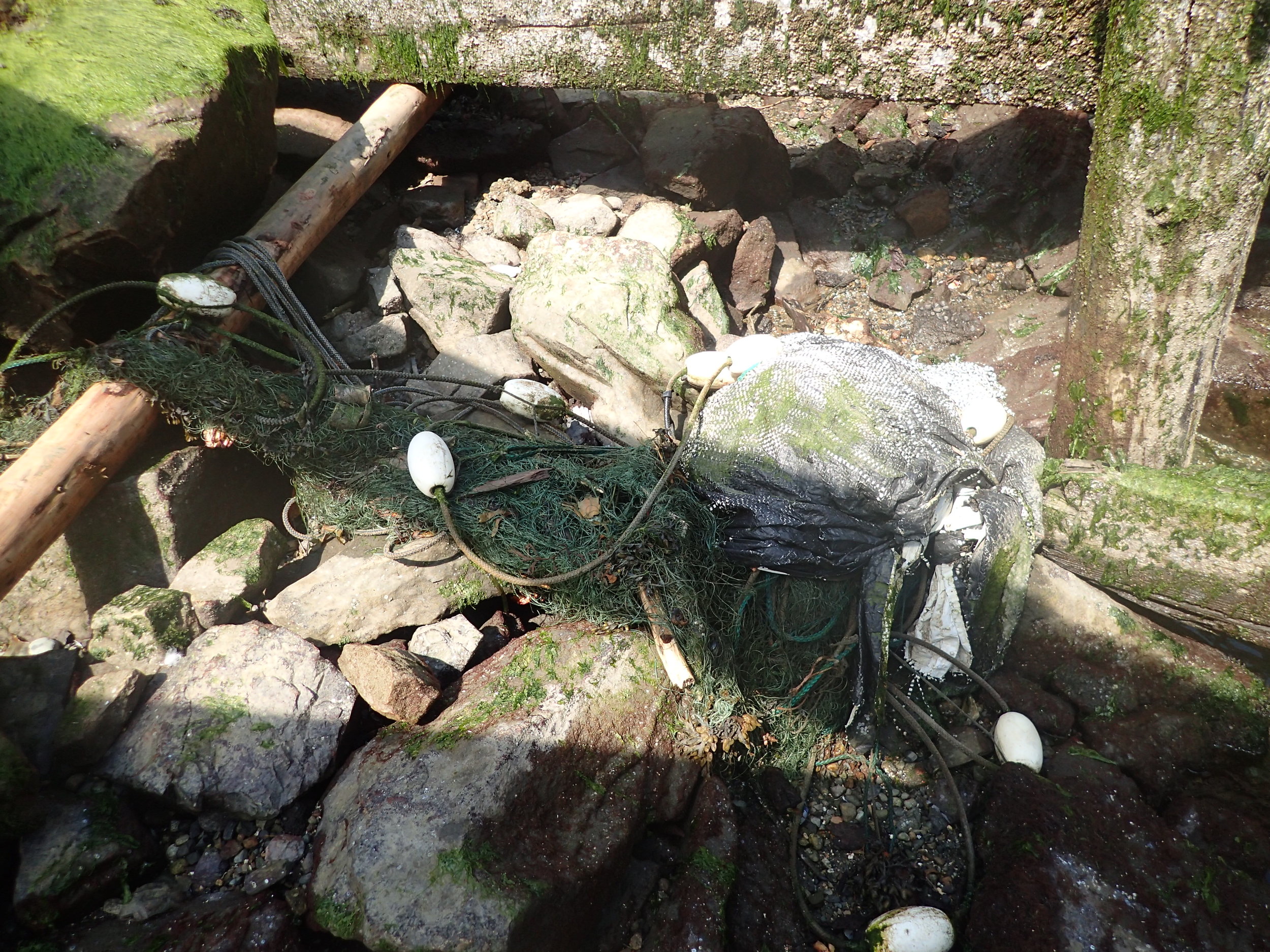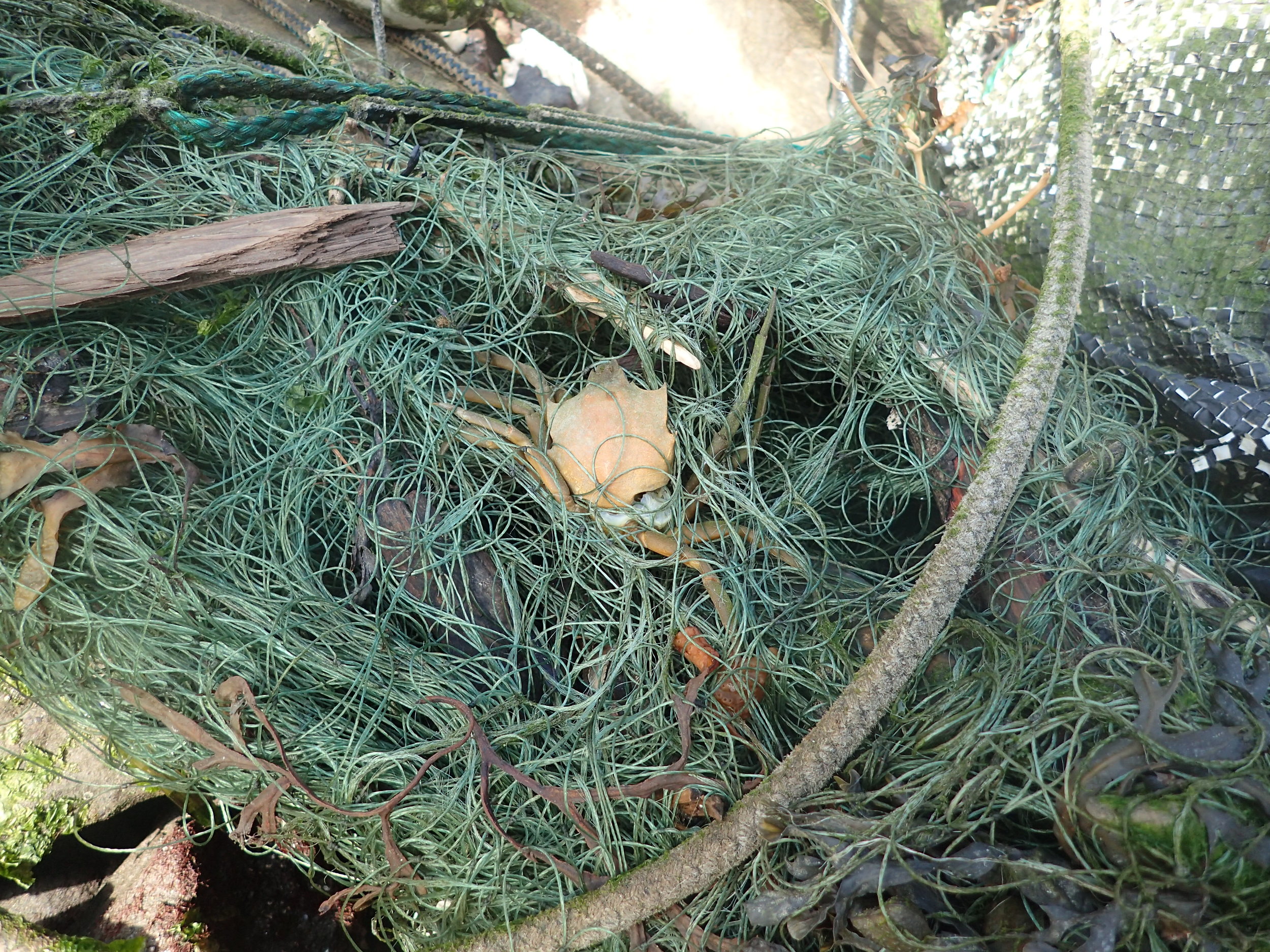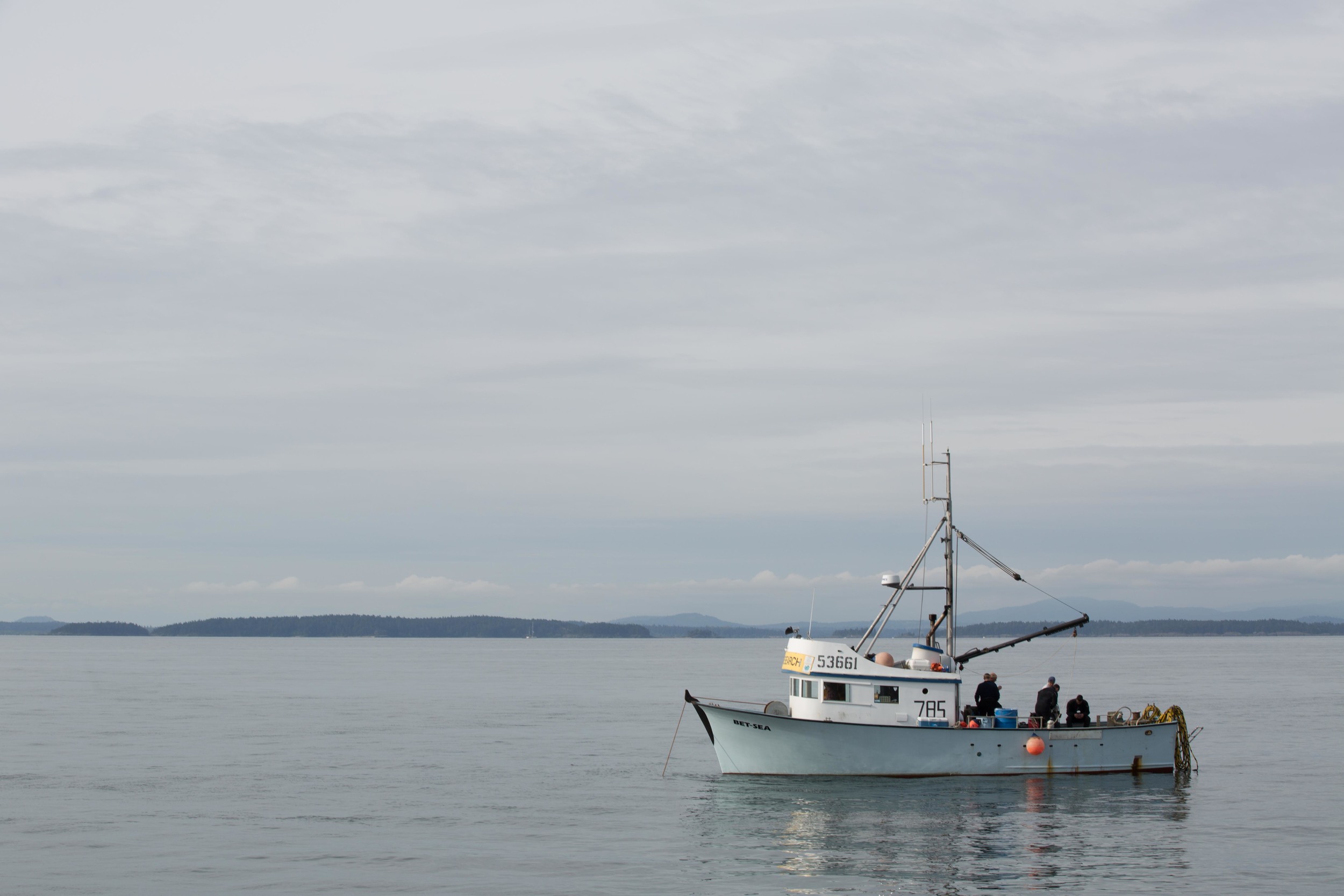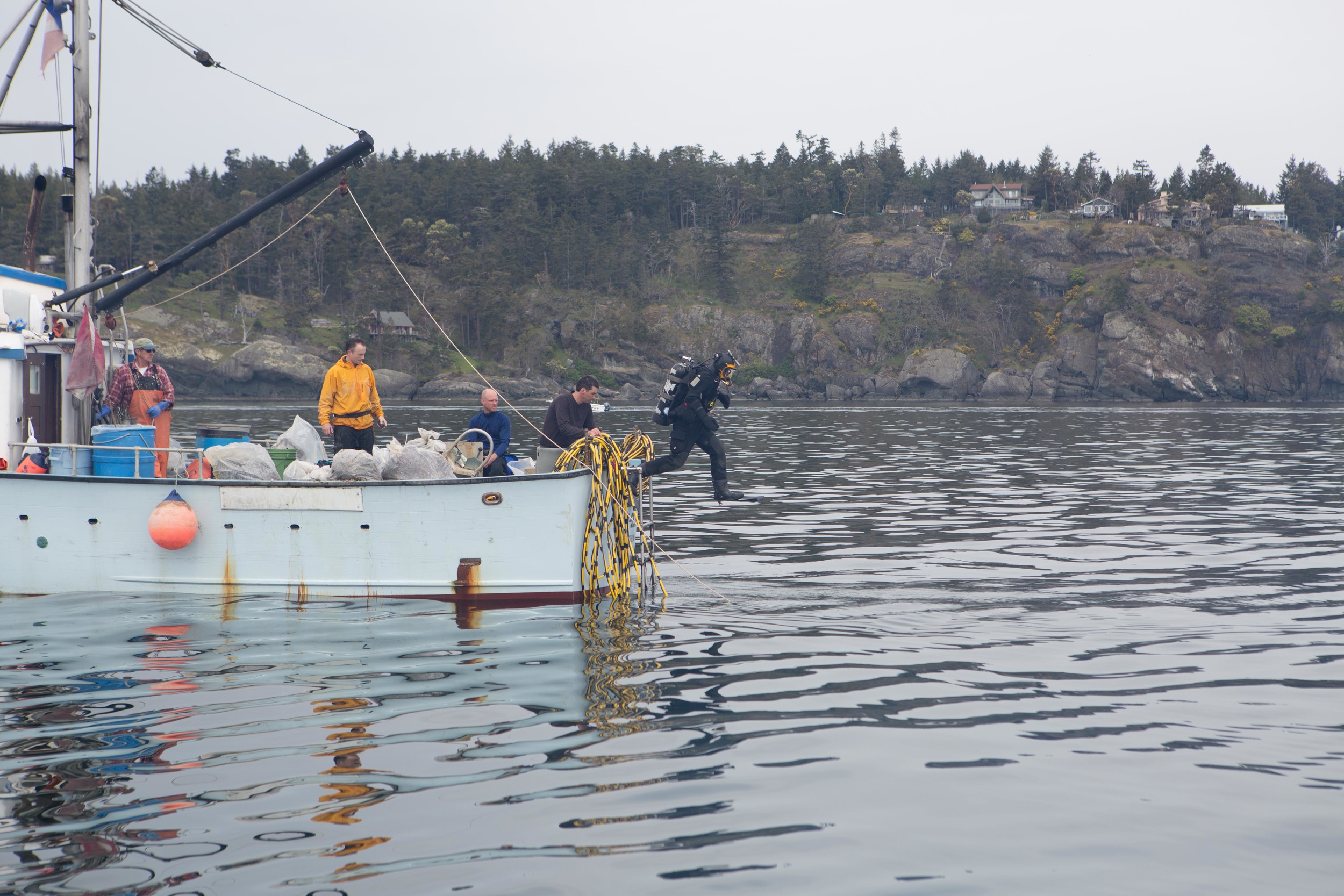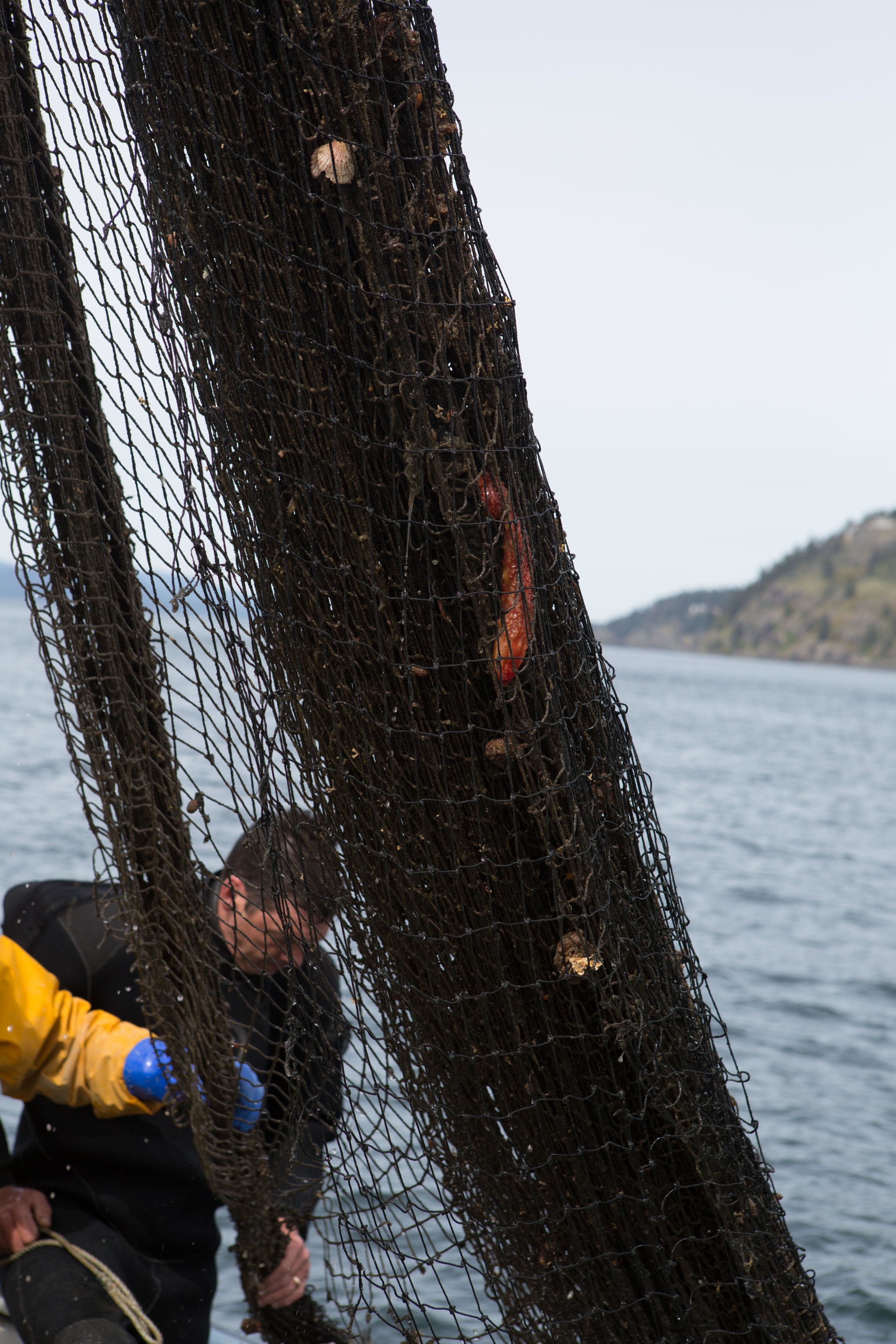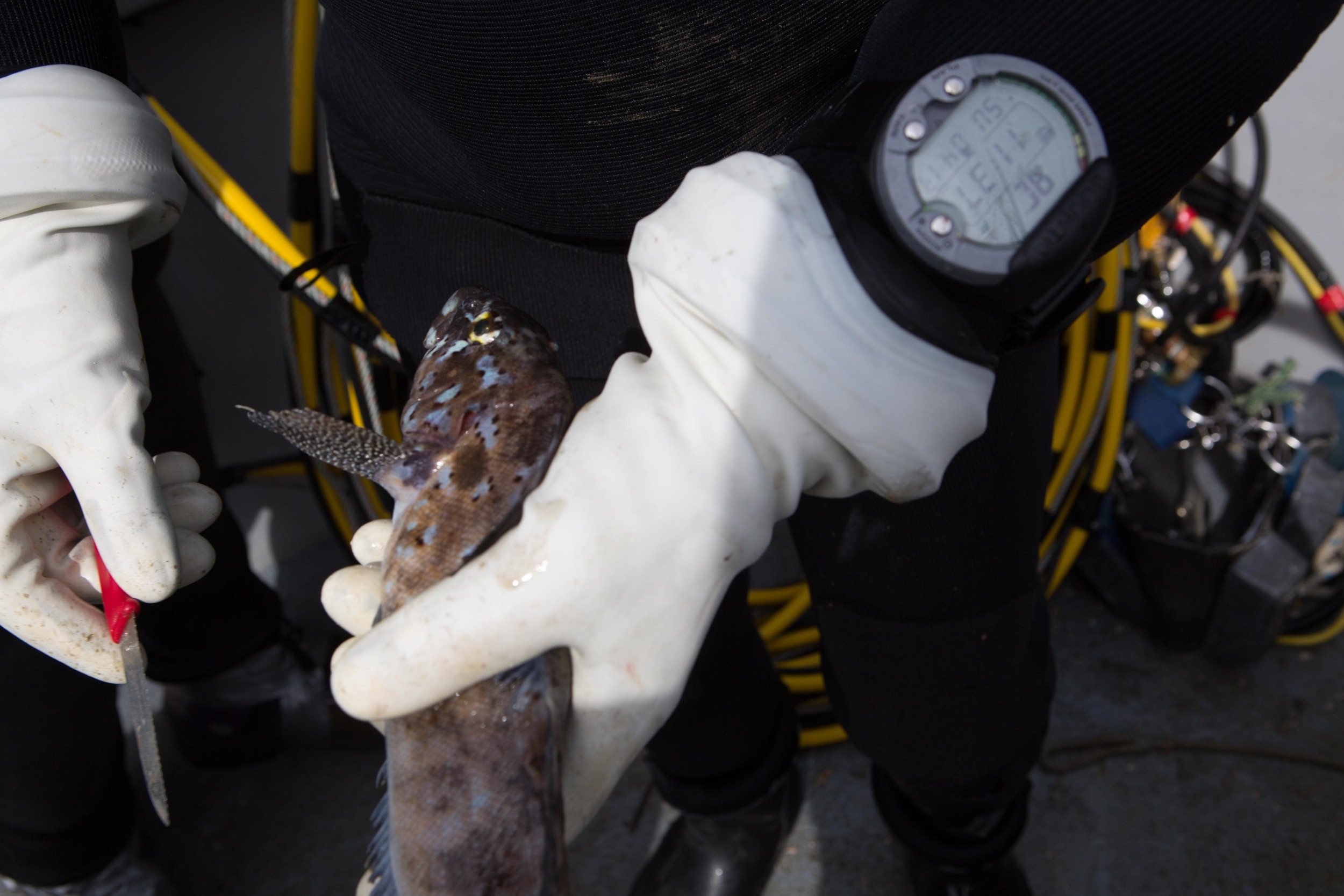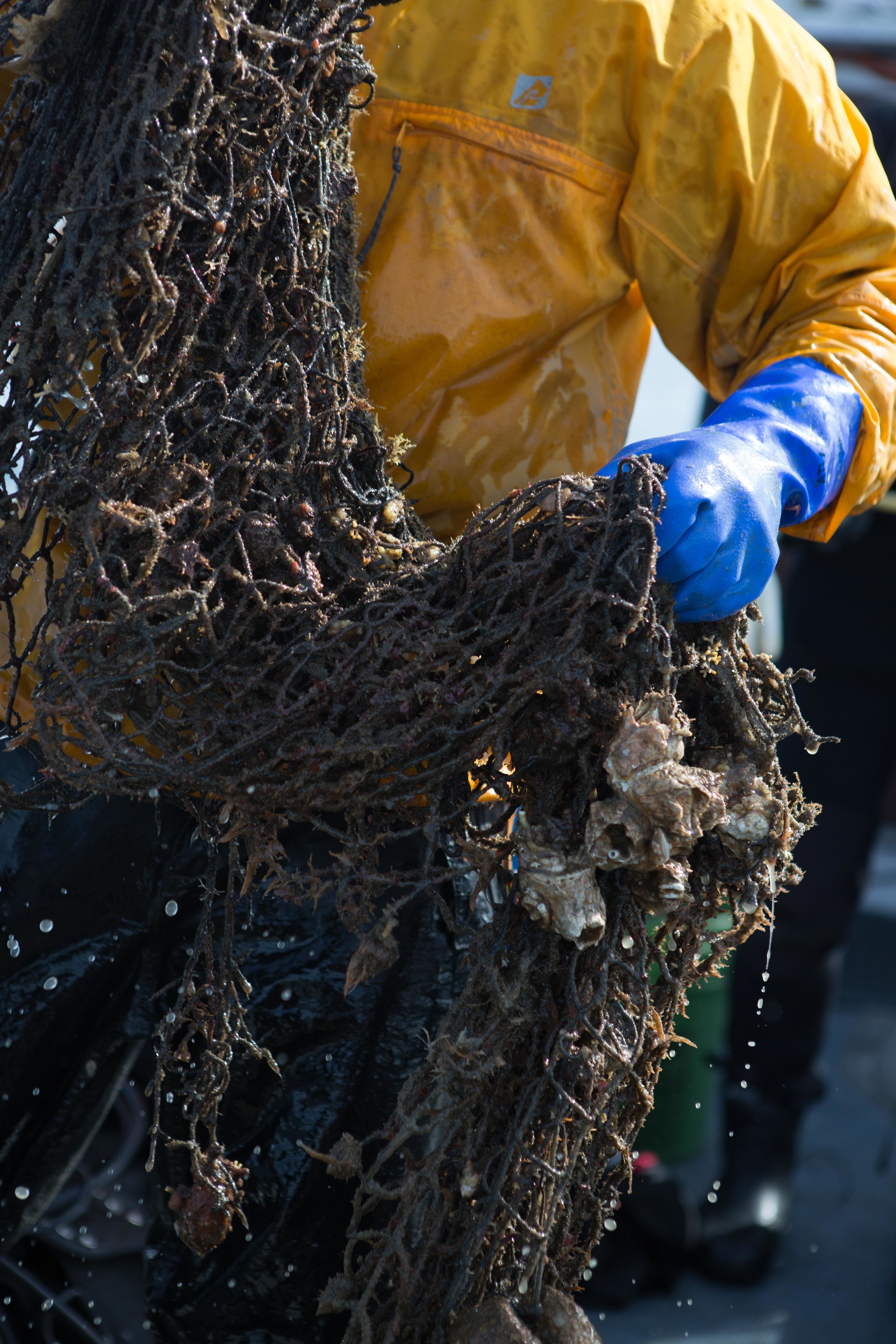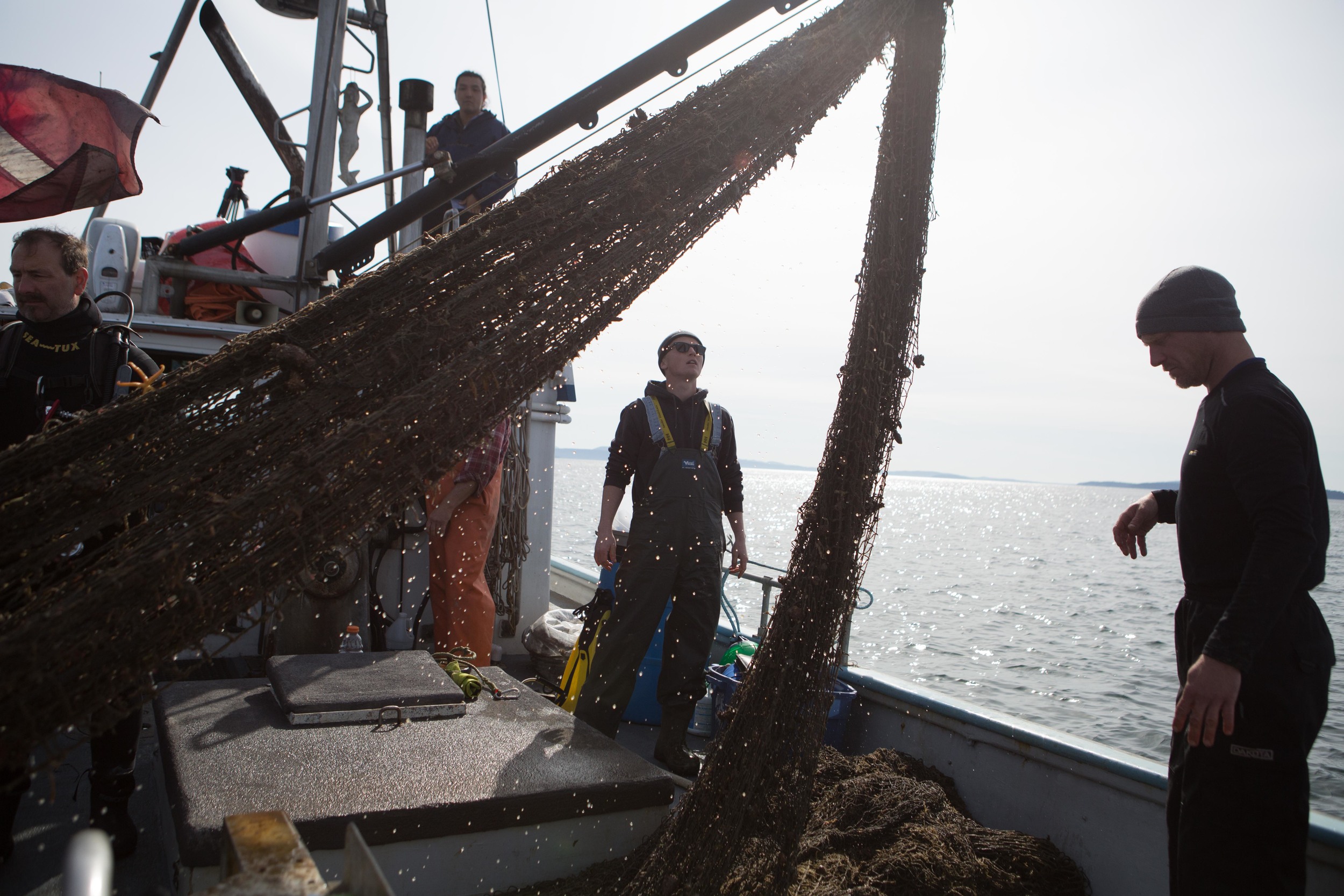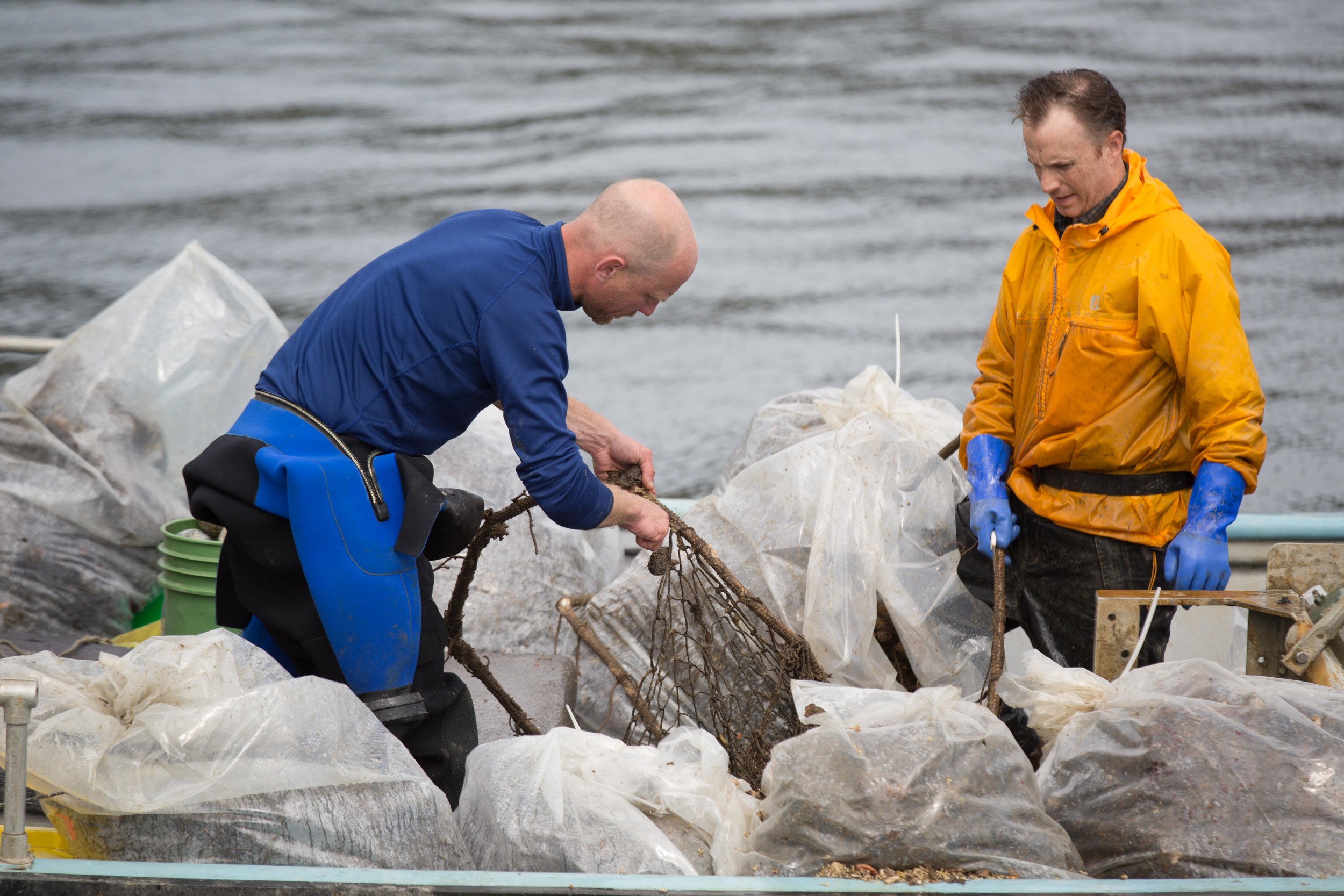In the spring, the team went out around Quadra Island for an aquaculture gear and debris removal project. The site included abandoned gear types like rope, predator net, aquaculture and other miscellaneous derelict gear.
In total, around 1200kg of gear was recovered!
At the project site in Granite Bay, a fish farm predator net was identified and was immediately removed. This net that was recovered was 1500 ft and had over 50+ crabs stuck in it! We removed the net from the site and released the crabs back into the ocean.
On all of our recovery efforts, we remove and release as much entangled marine life as we can in an effort to restore a healthy ecosystem and by removing harmful ghost gear, we are preventing the future accidental entanglement of a wide variety of species. Though it can be a time consuming part of the recovery process, it is something we feel is a priority.
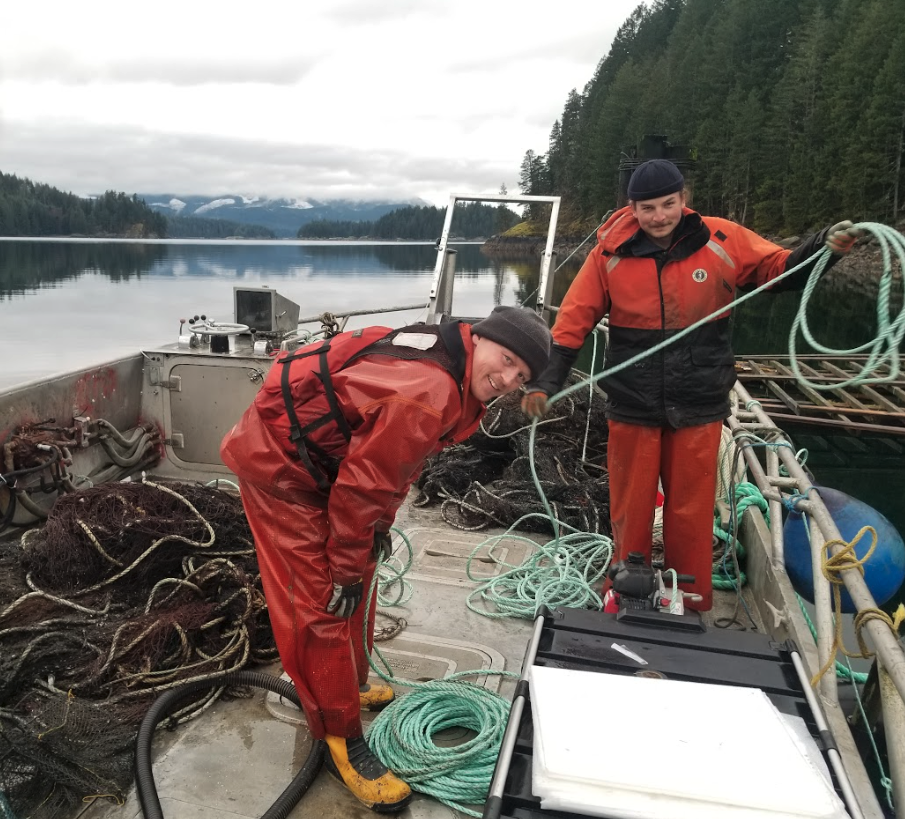
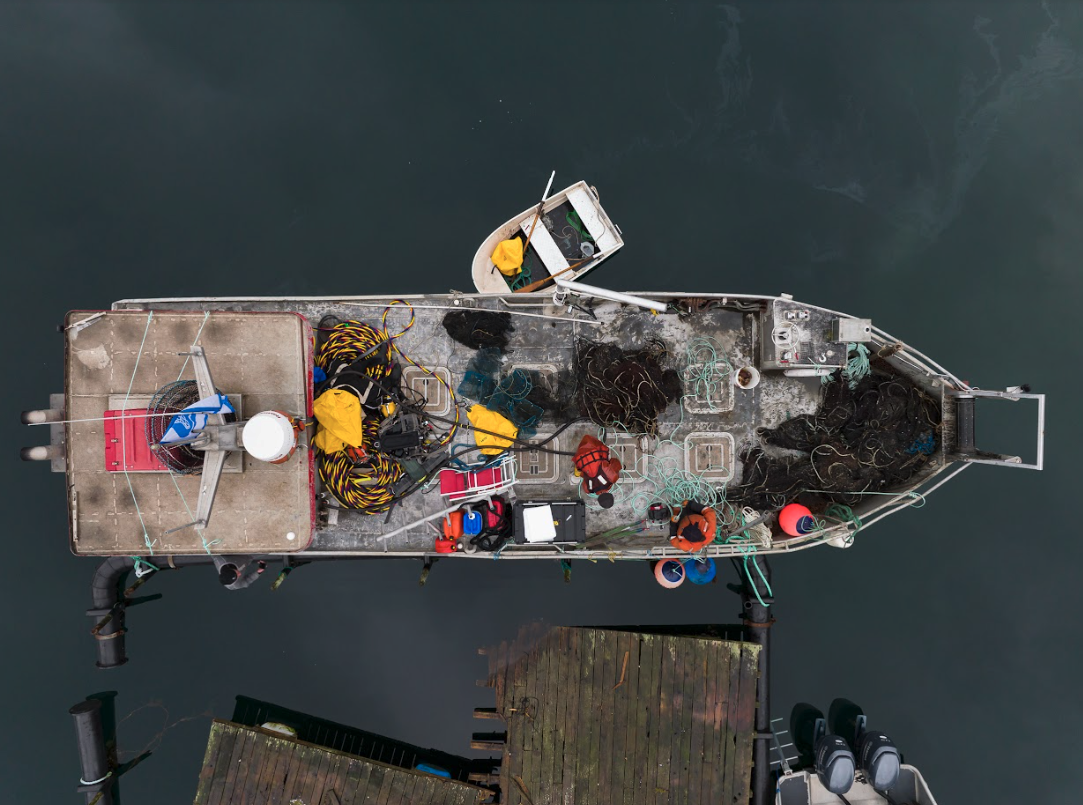
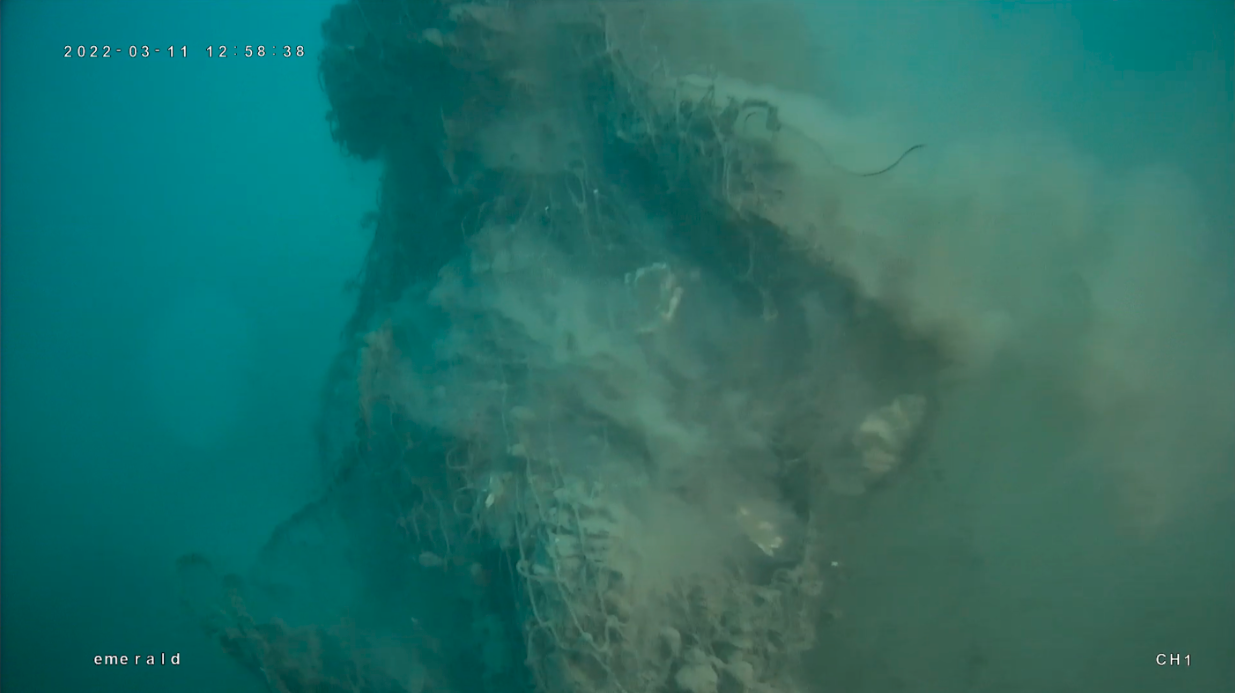
This recovery project successfully removed the net, along with other traps, aquaculture debris, and rope. Want to see more about how the trip went? Take a look at this video:
Thanks to Markus Thompson for the drone photos and videos of this cleanup effort.
